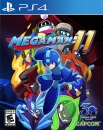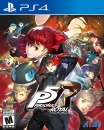Otter said:
Mnementh said:
Nah. WiiU was definitely no blue ocean strategy. I was there and Nintendo totally focued marketing on classic 3rd-party hardcore titles. It even seemed they expected multiplats to move the system, as they totally lacked 1st-party games at launch and in the time following. Only late in the lifetime they remembered more casual titles and brought Wii Fit U and even later the port Wii Sports Club, which for unclear reasons was download only and sold each sport separately.
3DS seems more a mixto me. It was a straight follow-up to DS, added some features that were mostly overlooked, but kept the DS features. Games were a total mix of more classic titles and others more focused on new user groups.
|
This doesn't match up with reality. Nintendo spotlighted a few key third party titles at launch as they always do (ZombieU) but the vast majority of push throughout its life was on their casual orientated titles.
|
People are able to look through a mirage built up by advertisement if it is too much off. And the WiiU and it's software was way off from the commercials you cited. The WiiU was not a machine aimed at and accepted by players of non-traditional games. This is very much illustrated by the sales of Just Dance. Through the whole lifetime of the WiiU, the Wii version of Just Dance sold more than the WiiU version (although this still could outsell the Xbox and PS versions).
The Switch on the other hand quickly became the platform Just Dance sold more than the Wii version of the game. This alone tells you a lot how much these systems were accepted by non-traditional gamers.
And this is even more hilarious, as advertisements for the Switch did not focus on these demographics as the ones you showed from WiiU. At this point it should be apparent, that ads are only a very weak way to characterize a platform. Ads may be in line with the way a thing resonates with the customers, but ads can be way off the mark as well.
The way how much Nintendo cared for different groups of gamers is expressed through the controls and the released games. These pretty much said that Nintendo followed a more traditional market with the WiiU.
Last edited by Mnementh - on 27 January 2021
3DS-FC: 4511-1768-7903 (Mii-Name: Mnementh), Nintendo-Network-ID: Mnementh, Switch: SW-7706-3819-9381 (Mnementh)
my greatest games: 2017, 2018, 2019, 2020, 2021, 2022, 2023
10 years greatest game event!
bets: [peak year] [+], [1], [2], [3], [4]




























































